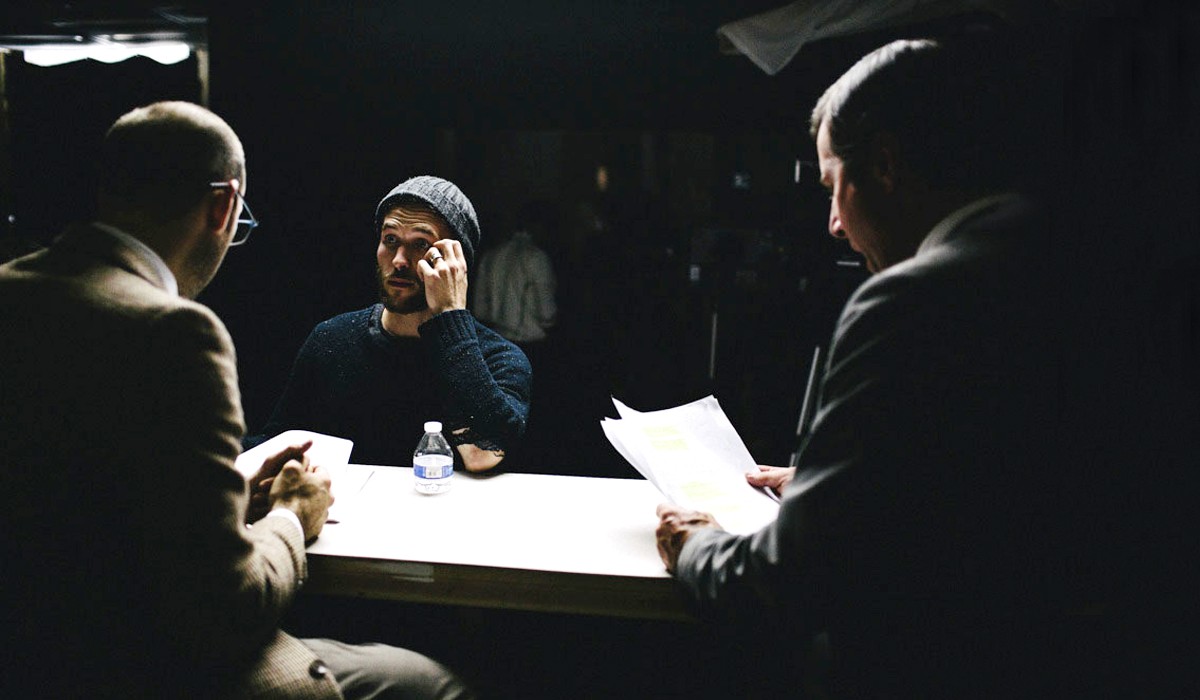We assume you make films because you want people to see them. Actually, more than just see — think, feel, resonate with, remember. An audience isn’t a passive group of eyeballs. It’s the reason your film comes to life. Literally, the motion of a film is created inside people’s brains. And the story too. Their experiences and feelings and thoughts and opinions will resonate with yours, and “movie magic” happens. It’s what keeps people going to the movies. And ⎯ allow us to be idealistic for a second ⎯ it’s what keeps filmmakers making them. So it’s funny that, when it comes to feedback, it’s so easy for us to believe that no one’s opinion matters but our own. Or, to go to the other extreme, to believe that someone else’s opinion is the only one that counts.
Creativity is a feedback-driven career. Filmmaking more than most. Everybody has an opinion and a YouTube login. Everybody has been watching films since before they could walk. Accountants leave the latest Mission Impossible film discussing what they would “do differently.”
So learning how to take feedback is essential, whether you’re working on a big-name client project or uploading your latest passion project to Vimeo. It can stunt your creative growth to completely shut yourself off from it, and yet it can be deadly to your career to completely open yourself up to it. Thus, receiving feedback in a balanced way becomes an art. Here are some useful thoughts and insights from experts well versed on the subject.

The better you let praise make you feel, the worse the criticism will sting.
STOP SEEKING PRAISE
Here’s something we’ve learned the hard way: The better you let praise make you feel, the worse the criticism will sting. The two are linked like a teeter-totter. The higher one takes you, the harder the other one lets you drop. Obviously, it’s hard to control how something makes you feel. But try this: receive praise with thankfulness, bask in it for about one minute, and then never think about it again. Don’t go back to that gushing email and read it over and over. Don’t put it into a special folder where you’ll always be able to find it. The praise will start to go sour. You’ll read into the nuances of the wording and start to wonder if the person was really gushing or just trying not to hurt your feelings. You’ll rob yourself of your own joy. And then when some sharp criticism comes your way, and it will, you’ll lose your footing altogether. Praise is not that big a deal. Once you’ve accepted that (and it’s kind of a bummer to do so) then criticism will stop being such a big deal too.
LISTEN TO PROBLEMS, NOT SOLUTIONS
Neil Gaiman, the author, has this great quote about feedback: “When people tell you something’s wrong or doesn’t work for them, they are almost always right. When they tell you exactly what they think is wrong and how to fix it, they are almost always wrong.” Even if you’re receiving feedback from somebody you creatively trust ⎯ your creative director, say, or the geniuses at Pixar ⎯ it is very hard for someone to tell you exactly how to fix the problems with your work. Mainly because that person isn’t you. And you’re the one who has to fix them.
Take this story from the production of The Incredibles (as told in the insightful book Creativity, Inc.). While the film was in development, director Brad Bird showed an early draft of a scene to a trusted critique group inside Pixar, known as the “Braintrust.” In the scene, Mr. Incredible is having an intense argument with his wife, Elastigirl. The feedback Brad got was that Mr. Incredible was too threatening. Too bullying. They didn’t like him, and they thought the scene needed to be rewritten. When Brad went back over the script, though, he didn’t want to change a word. So he kept thinking about it until he realized that if Elastigirl stretched herself to Mr. Incredible’s size during the argument’s most intense moment, it could solve the problem. He showed the Braintrust the revised scene and they loved it. Which lines had he rewritten, they wondered? He proudly told them he hadn’t changed a single comma.
The only way to make truly worthwhile changes is for them to come from that creative place inside of you, not from some external, jerry-rigged solutions devised by someone else. Accept it when people tell you something needs fixing. Then fix it yourself.

Accept it when people tell you something needs fixing. Then fix it yourself.
FEEDBACK ISN’T PERSONAL
This is especially true of client work. Remember, feedback is not about you; it’s about the person giving you the feedback. When they say something isn’t right, they’re saying something isn’t right for them ⎯ not that something isn’t right with you. Think of it as a way to learn what your client prefers, rather than it being an objective assessment of your work. This will allow you to listen calmly instead of flaring up in self-defense. There is no “correct way” to see a piece of work. As Quentin Tarantino said, “If a million people see my movie, I hope they see a million different movies.” Getting feedback is a way of finding out how one person saw your work. And if they happen to be the one person who is paying you, then you should listen.
GREAT WORK IS POLARIZING
So you made something that a few people hate? Nice job. Making people react strongly to anything is an impressive accomplishment these days. You’ve cut through the noise. But remember, polarizing means there is equal enthusiasm for and against. If you’re getting only strong, negative feedback, then something is wrong.
In Stephen King’s now canonical book on writing — called, appropriately, On Writing — he gives the following advice about weighing feedback. It’s a useful guide for telling the difference between something that’s polarizing and something that needs changing:
Show your piece to a number of people – ten, let us say. Listen carefully to what they tell you. Smile and nod a lot. Then review what was said very carefully. If your critics are all telling you the same thing about some facet of your story — a plot twist that doesn’t work, a character who rings false, stilted narrative, or half a dozen other possibles — change that facet. … But if everyone — or even most everyone — is criticizing something different, you can safely disregard what all of them say.
EVEN DIRK NOWITZKI HAS A COACH
There’s no doubt Dirk could destroy his coach in a game of one on one. He is unquestionably a better player than his coach ever was. But he still needs a coach. He is better for having a coach. And Dirk knows it. The same thing goes for creatives. We need an outside perspective. It doesn’t have to come from someone who is better than us; it just has to come from someone who isn’t us. And that could be anybody. Pixar has the Braintrust. Dirk has Rick Carlisle. Who do you have?

Learning how to take feedback well is important not just for your individual projects. It’s important for the longevity of your career. People who aren’t good at receiving feedback usually don’t make it very far, because they get too discouraged, or because they refuse to learn how to improve. Accepting feedback graciously is definitely a high-wire walk. It takes patience to master. But we’re sure you’ll find the proper balance.





















































































